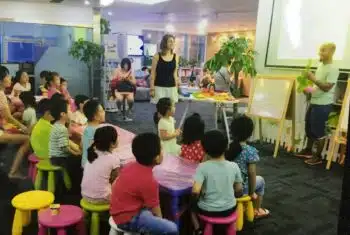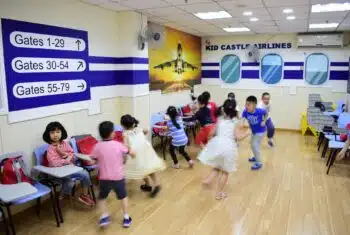Life In A Tier 1 City In China: Beijing
Join a global community of over 200,000 TEFL teachers working throughout the world! Enrol me!
As the second biggest country in Asia, China isn’t just big, it’s massive.
It’s packed with every kind of city imaginable, each one so different from the next that it’s been unofficially divided into levels. These levels are used to help understand the different characteristics of each city. This is mostly for business, government or investment purposes, but it’s useful for those of us not familiar with China to better understand the nature of any Chinese city.
These are five levels, known as tiers.
These range from busy powerhouse Tier 1 cities like Beijing, Shanghai and Shenzhen, to slower-paced, less developed Tier 5 cities like Yichun and Wuwei.
The difference between the top and bottom tiers is huge, from infrastructure, education level and wealth, to overall quality of life. So if you’re thinking about teaching English in China, keep that culture shock in check by knowing the difference between your tiers and setting realistic expectations
Read more: Teach English in China
Joshua, a South African TEFL teacher, lived in Beijing: a major Tier 1 city. He shares what it’s like to live in one of China’s most influential and affluent cities.
They say that moving to a new city can cause severe stress and anxiety. So imagine moving from a semi-rural town in South Africa to a Tier 1 city like Beijing — where getting by with English alone is a struggle and nothing remotely resembles your daily life back home.
Luckily, I made the move from Busan, South Korea, which has a lot in common with a Tier 1 city. But at least there, I could manage with just English.
Read more: What’s It Like Teaching In South Korea Without Speaking Korean?
Beijing was a dragon of a different colour.
Living in a Tier 1 city in China
Before my flight with Singapore Air, my expectations of China were largely shaped by how it’s portrayed in movies. I pictured a scary totalitarian country like North Korea.
Ignorance on my part, I know.
From the plane, I was in awe of how massive Beijing was as we approached to land.
Once I passed through immigration, I was surprised by how welcoming everything felt at arrivals.
Here and there, people were eating sunflower seeds and drinking tea — it seemed like a pleasant place.
One of the teachers from my school greeted me, and we had coffee. I realised everything was going to be okay. Because honestly, something must be seriously wrong if coffee can’t fix it!
As we drove to the Haidian District by shuttle, I saw thousands of trees lining the area next to the highway.
Thank goodness we had a few days of orientation, because I had no idea what to do, where to go, or how to use the bus system to get to work.
Read more: How To Live & Work In China As A Foreigner
We arrived late in the afternoon, and I’d brought some snacks with me for dinner. The next morning, I decided to get a real breakfast and went to a restaurant.
Imagine this: no Western writing, no pictures, and no clue from my side. It became the most embarrassing game of 30 Seconds I’ve ever played — but I won.
After miming that I was hungry and placing some money down, the waiter smiled and brought me a serving of dumplings.
In cities like Beijing, I experienced most of the things I had dreamed of doing within the first few months. All it takes is a little guidance and a good attitude to own any situation.
The challenges of living in a Tier 1 city in China
The pace of life was a challenge at first.
In Africa, we have “African time” or the now-now culture. When will you hand in the lesson plan? “Now-now.” That can mean anything from “it’s ready” to “you’ll get it when you get it.”
In Beijing, the pace is rushed — even in the subway or on a bus. Even holidays feel hurried.
But it also means punctuality and efficiency, which I’ve come to value.
Another challenge was cultural norms.
I had read up on Chinese culture before my flight, but when you’re hungry and facing a language barrier, all that knowledge can fly out the window. You make mistakes at communal dinners or lunches. You mess things up — repeatedly.
But it’s all part of the adventure.
Read more: How To Deal With Culture Shock
I had to learn to forgive myself for embarrassing moments.
During one of my first lessons, I wrote my name and the class name on the board using a red marker, and my co-teacher freaked out, as if I’d coughed during COVID!
Read more: Co-Teaching In The EFL Classroom
Writing in red ink is taboo. It’s linked to death and bad luck, so writing someone’s name in red ink could be misinterpreted as a death wish.
In a nutshell, it’s a definite no-no. And this belief is not unique to China, but exists in Korea, Japan and Portugal too.
Working in a Tier 1 city in China
I’ve worked in both public schools and language centres, so I’ve seen both sides of the coin.
The Chinese teachers work incredibly hard. They start when it’s dark and go home when it’s dark.
Some colleagues worked until 10:00 pm, then returned bright-eyed and bushy-tailed at 7:00 am. It’s something to keep in mind before you complain about your workload.
In Haidian, my classes were large, and the schedules ran like clockwork, thanks to the taskmasters running the school.
Read more: Things To Know About Chinese Classroom Culture
It took some getting used to we didn’t have excessive admin. That gave us time to focus on and enjoy teaching.
At the language centre in the same district, the class sizes were similar to the others, but the lessons were 60 minutes instead of 45 minutes. That meant more prep, mostly because Haidian is affluent, and the parents are the patrons.
How much do teachers earn in a Tier 1 city in China?
On average, in China, a TEFL teacher earns between ¥9,000 – ¥35,000 ($1,200 – $5,000) a month. This doesn’t take the different tiers into consideration. Teaching jobs in Tier 1 cities in China pay more than teaching jobs in other cities, but bear in mind that the cost of living will be higher in those cities, too.
Joshua earned ¥25,000 ($3,500) a month in Beijing.
How does the cost of living compare to a Tier 2 city?
There’s definitely a difference in rent and grocery costs.
A mentor once told me that no amount of money will be enough if you shop in the wrong stores or hang out in expensive neighbourhoods.
My apartment was provided by the school, but I noticed that some items were more expensive depending on the neighbourhood. (Compare the price of a bottle of water at a corner store to the same bottle at an upmarket grocery store — you get the idea.)
If accommodation is included in your contract, this is a huge plus. Rental can make a big dent in your income so if it’s not in the equation that’s a huge boost to your savings.
You need to plan carefully and resist temptations like the Korean bakery downstairs or international fast food chains..
Comfort eating is real — but it needs a budget.
I always say, “When in Rome…” So I tried to make friends with local colleagues and ask for advice on things food-related.
Going to smaller supermarkets in older buildings or eating at local food courts made all the difference.
For me, food can make or break a place, and in China, it made the experience a good one.
Were you able to save money while teaching in a Tier 1 city in China?
Not only was I able to save money, but I bought a house back home.
I come from a middle-class background, so saving has always been a priority. As I mentioned earlier, I ate local, stuck to grocery lists, and avoided impulse buys.
Transport, electricity, and utilities were non-negotiable expenses, but I kept control by setting spending limits. For example, if my entertainment budget was ¥ 200 (about $28) and if something cost more, I’d skip it.
I follow the 24-hour rule: if I want to buy something, I wait a day. Then, if I still want it, I buy it.
Often the urge passes, and I save the money.
I also used public transport instead of taking taxis, saving a ton of yuan.
The Chinese currency is the yuan, also known as the renminbi.
Read more: Teach English in China: Salaries
Housing in a Tier 1 city in China
The closer you are to the city centre, the more expensive and smaller the apartments tend to be.
In Tier 2 cities or on the outskirts, apartments are generally larger.
I’ve always had accommodation provided by schools. In China, I was lucky to have spacious apartments, unlike South Korea, where I lived in a shoebox.
My solution? To go out and explore as much as possible.
TEFL teachers in China can expect an average apartment size of 40–60m² in a Tier 1 city and 60–90m² in a Tier 3 city.
This is bigger than the average teacher apartment in Seoul, South Korea, where teachers make do with as little as 23–33m²: a “shoebox.”
Expat life in a Tier 1 city
I was fortunate to work with a bunch of expats at the language centre, and I also found others through Facebook. Sometimes I’d meet people randomly during the day and get invited into WeChat groups.
Read more: How To Find Your Community As A TEFL Teacher
If you’re religious, mosques or churches are another way to connect.
Contrary to what many believe, China does allow you to practice your religion, just don’t promote it in your lessons.
Religion is a tricky topic to deal with in any classroom around the world, as are a number of other topics. These topics are known as PARSNIPs (politics, alcohol, religion, sex, narcotics, -isms, and pork) and should generally be avoided.
Travel opportunities within China from a Tier 1 city
It’s a Tier 1 city for a reason — the infrastructure is fantastic.
I commuted to work by bus, and the school was just a block from the stop.
The subway system is extensive and affordable, which made weekends amazing. I challenged myself to explore a new subway station each time I travelled.
High-speed rail is convenient and affordable.
When I had the energy during weekends or holidays, I went on road trips, but often I was too tired to leave Beijing for an action-packed weekend in another city.
Read more: 15 Genius Teaching Tips and Travel Hacks for TEFL Teachers
Tips for moving to a Tier 1 city as an expat
It might sound clichéd, but everything starts with your attitude.
Other than that…
- let go of preconceived ideas,
- explore more,
- try new food (the worst that can happen is you won’t like it), and
- see everyone as a potential bestie.
So just relax, get some sleep, and don’t be afraid to ask for help.

Accreditation & Quality Assurance
The TEFL Academy was the world’s first TEFL course provider to receive official recognition from government regulated awarding bodies in both the USA and UK. This means when you graduate you’ll hold a globally recognised Level 3 (120hr) Certificate or Level 5 (168hr) Diploma, meaning you can find work anywhere and apply for jobs immediately.
 United States
US
United States
US





















